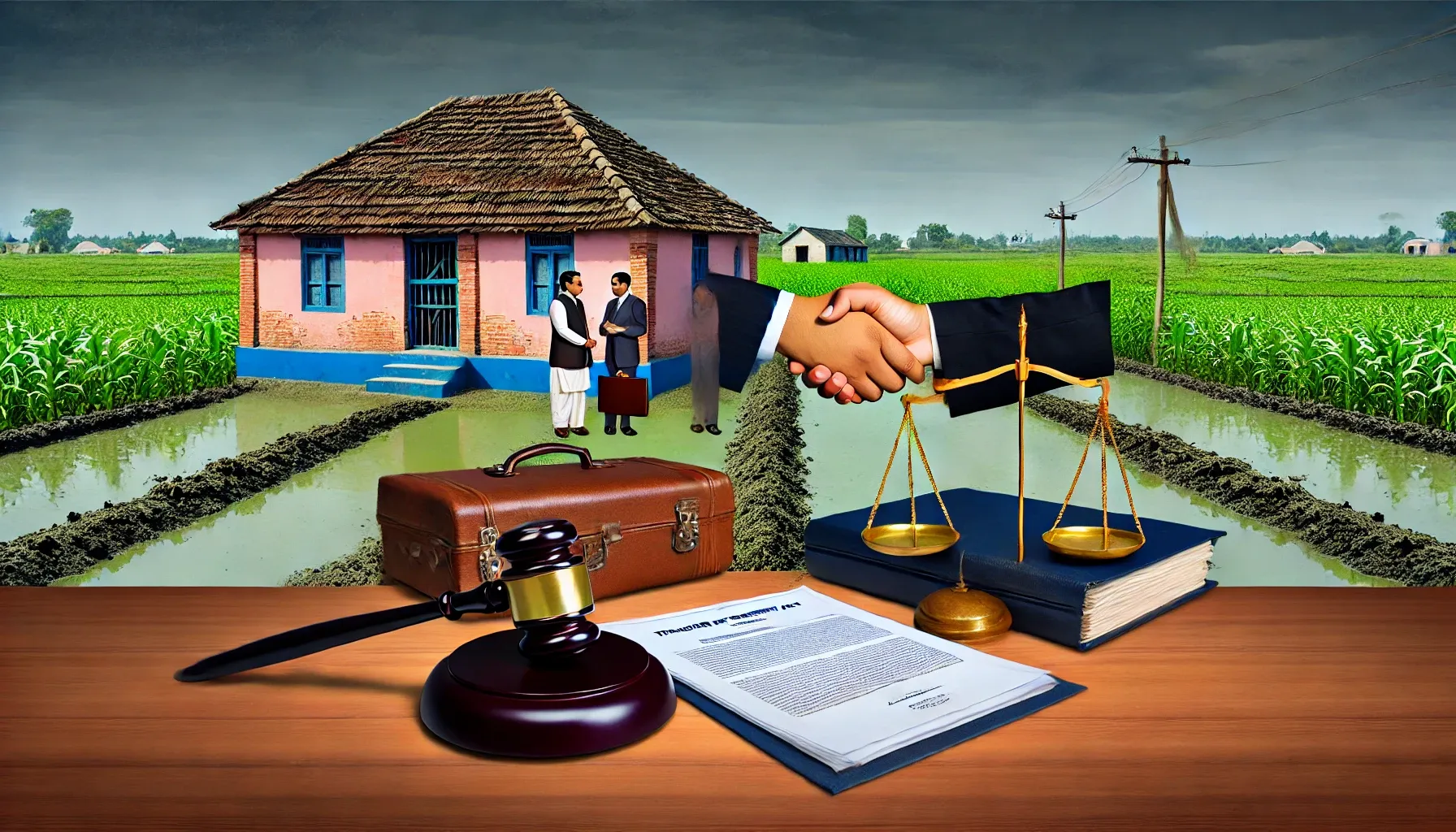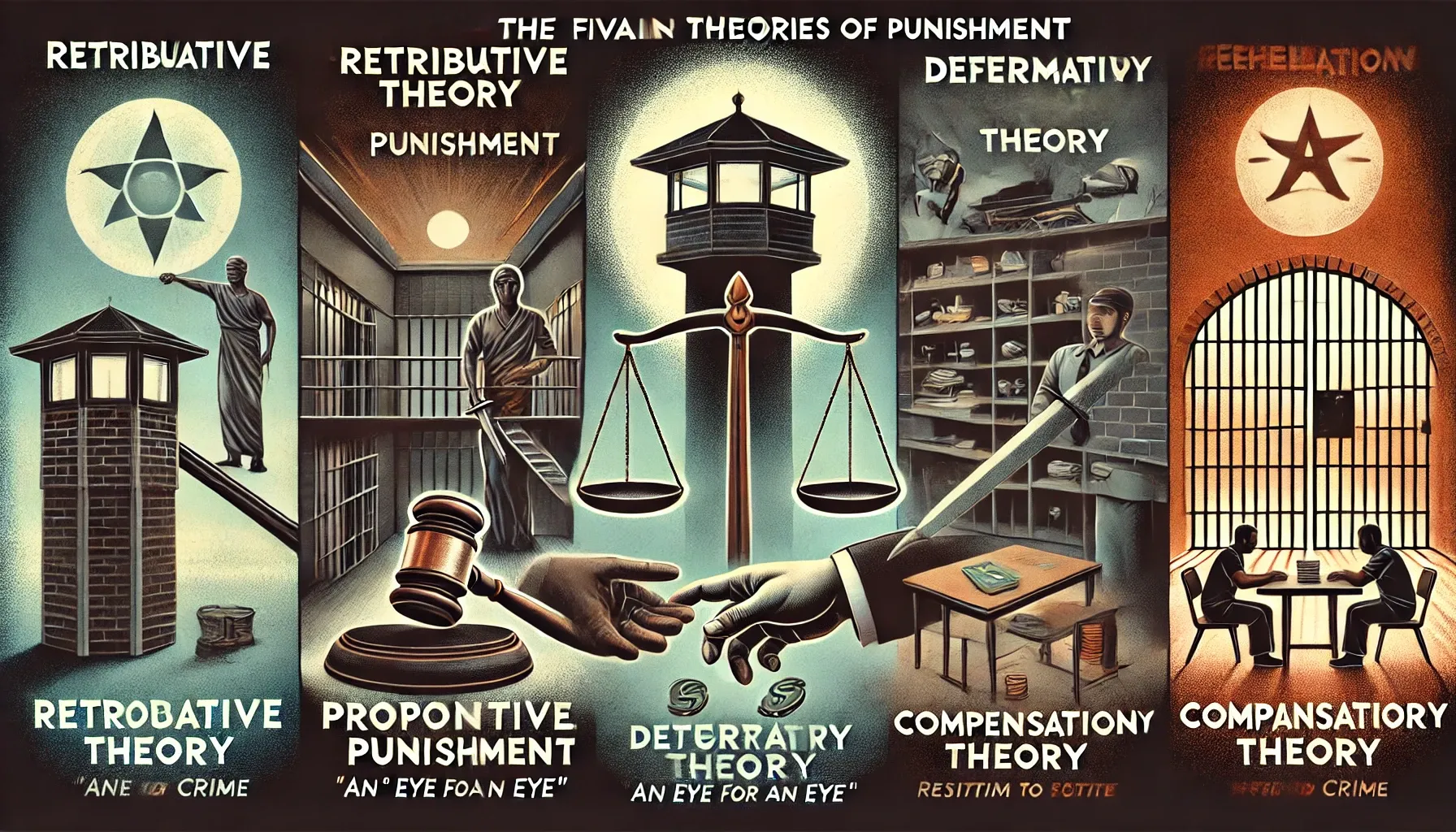
lex-o-pedia
चल एवं अचल संपत्ति का अर्थ एवं परिभाषा क्या है?
चल संपत्ति वह होती है जिसे स्थानांतरित किया जा सकता है, जैसे वाहन, मशीनरी आदि, जबकि अचल संपत्ति स्थायी होती है और स्थानांतरित नहीं की जा सकती, जैसे भूमि, भवन। संपत्ति हस्तांतरण अधिनियम, 1882 इन संपत्तियों के अधिकार और लेनदेन को नियंत्रित करता है।

lex-o-pedia
चल एवं अचल संपत्ति का अर्थ एवं परिभाषा क्या है?
चल संपत्ति वह होती है जिसे स्थानांतरित किया जा सकता है, जैसे वाहन, मशीनरी आदि, जबकि अचल संपत्ति स्थायी होती है और स्थानांतरित नहीं की जा सकती, जैसे भूमि, भवन। संपत्ति हस्तांतरण अधिनियम, 1882 इन संपत्तियों के अधिकार और लेनदेन को नियंत्रित करता है।

lex-o-pedia
How Does Film Censorship in India Balance Artistic Freedom and Societal Norms?
Film censorship in India seeks to balance artistic freedom with societal norms. While the Constitution guarantees freedom of speech, it allows restrictions in the interest of public order, decency, and morality, with the CBFC acting as a regulatory body for this purpose.

lex-o-pedia
हस्तांतरणीय और गैर-हस्तांतरणीय संपत्ति क्या होती है?
संपत्ति अंतरण अधिनियम, 1882 भारत में संपत्ति के हस्तांतरण को नियंत्रित करता है। यह हस्तांतरणीय और गैर-हस्तांतरणीय संपत्ति को परिभाषित करता है और वैध हस्तांतरण के लिए सहमति, कानूनी क्षमता, और संपत्ति की पहचान जैसी शर्तों को निर्धारित करता है।

lex-o-pedia
संपत्ति हस्तांतरण की अवधारणा क्या है?
संपत्ति हस्तांतरण अधिनियम, 1882 संपत्ति के अंतरण की प्रक्रिया, नियम, और पक्षकारों के अधिकार-कर्तव्यों को स्पष्ट करता है। यह स्थावर व जंगम संपत्तियों के अंतरण को विनियमित कर पारदर्शिता और सुरक्षा सुनिश्चित करता है। संशोधन से अद्यतन बना रहता है।

lex-o-pedia
What is the role of the media as the fourth pillar, and what challenges does it face in Indian democracy?
The media serves as the fourth pillar of Indian democracy, playing a crucial role in ensuring transparency, accountability, and unbiased reporting, while facing challenges like censorship, bias, and misinformation.

lex-o-pedia
What is the Doctrine of Lis Pendens under the Transfer of Property Act?
The Doctrine of Lis Pendens, under Section 52 of the Transfer of Property Act, 1882, prevents property transfers during ongoing litigation. It ensures the disputed property's status remains unchanged, protecting litigants' rights and upholding judicial authority.

lex-o-pedia
What is the process for the inspection, inquiry, and investigation of companies under The Companies Act, 2013?
The Companies Act, 2013 outlines processes for inspecting, inquiring, and investigating companies to ensure transparency and prevent fraud. Authorities like the Registrar, Central Government, and SFIO can scrutinize records, investigate misconduct, and protect shareholder interests.

lex-o-pedia
What is the Doctrine of Part Performance under the Transfer of Property Act?
The Doctrine of Part Performance, under Section 53A of the Transfer of Property Act, 1882, protects transferees who act in good faith on an unregistered property agreement. It ensures fairness by barring transferors from denying rights after part performance of the contract.

lex-o-pedia
What is the process for the appointment of Key Managerial Personnel (KMP) and their remuneration?
The appointment of Key Managerial Personnel (KMP) in companies is governed by the Companies Act, 2013, which mandates their appointment for certain public companies. The KMPs are responsible for managing operations and ensuring compliance, with specified roles and remuneration limits.

lex-o-pedia
Who is an Ostensible Owner under the Transfer of Property Act?
An ostensible owner appears as the true owner with the real owner's consent but lacks actual ownership. Under Section 41 of the Transfer of Property Act, a good-faith purchaser relying on such ownership may acquire valid title, overriding the real owner's rights.

lex-o-pedia
What Is the Regulatory Framework Governing a Dormant Company?
Dormant companies, under Section 455 of the Companies Act, 2013, can temporarily pause operations while retaining assets and reducing compliance. By meeting specific requirements, they can regain active status within five years or risk being struck off by the Registrar of Companies.

lex-o-pedia
What is Malicious Prosecution under the Law of Tort?
Malicious prosecution under tort law involves initiating legal proceedings with malice and without probable cause. Key elements include lack of reasonable cause, malice, favorable termination for the plaintiff, and resulting damages, ensuring protection from legal abuse.

lex-o-pedia
What is the effect of conversion under Muslim Law?
Religious conversion under Muslim law affects inheritance, marriage, maintenance, and guardianship. Apostasy dissolves a husband’s marriage, while a wife must seek divorce. Converts gain inheritance rights under Muslim law but lose them from non-Muslim relatives, balancing faith and legal status.

lex-o-pedia
What are the audit requirements under the Companies Act, 2013?
Audit requirements under the Companies Act, 2013 ensure transparency, accountability, and fair financial reporting. Key audits include internal, secretarial, and cost audits, depending on company type. Appointment and removal of auditors follow specific legal procedures.

lex-o-pedia
What is an overview of non-profit companies under the Companies Act, 2013?
Non-Profit Companies under Section 8 of the Companies Act, 2013, promote charitable objectives like education, social welfare, and environmental protection. They use profits solely for their aims, not dividends, and enjoy tax exemptions. Non-compliance can lead to penalties or dissolution.

lex-o-pedia
What are the Laws of Censorship in India for Print and Electronic Media?
Censorship in India balances freedom of expression with societal harmony. It spans print, electronic, and digital media through laws like the Cinematograph Act and IT Rules, 2021. While it aims to uphold public order, concerns remain over its potential misuse and impact on creativity.

lex-o-pedia
What is the Law of Inheritance under Muslim Law?
Islamic inheritance law, rooted in Quranic principles, ensures structured asset distribution among heirs, emphasizing tenants-in-common rights. Differences exist in Sunni and Shia laws, including doctrines like Radd and Aul.

lex-o-pedia
How does compelled speech in India navigate the intersection of media law and constitutional freedoms?
Compelled speech in India challenges the balance between freedom of expression under Article 19(1)(a) and state-imposed mandates. Courts cautiously limit such mandates to public interest under Article 19(2).

lex-o-pedia
What is the legal framework and economic impact of ancillarisation?
Ancillarisation fosters a collaborative ecosystem, linking SMEs and large firms for efficiency. Governed by the Companies Act, 2013 and MSMED Act, 2006, it supports economic growth and industrial synergy.

lex-o-pedia
What is the Doctrine of Lis Pendens under the Transfer of Property Act, 1882?
The doctrine of lis pendens, under Section 52 of the Transfer of Property Act, 1882, prevents property transfers during litigation to safeguard legal proceedings and maintain the disputed property's status quo.

lex-o-pedia
How can the theories of punishment be critically analyzed?
Punishment aims to deter crime, maintain order, and reform offenders. Theories like retributive, deterrent, preventive, reformative, and compensatory provide frameworks for justice, balancing crime and society.

lex-o-pedia
What is Yellow Journalism in India?
Yellow journalism in India reflects sensationalism aimed at profits, often infringing on rights. While traditional media follows ethics, new media amplifies misinformation, requiring regulatory frameworks.

lex-o-pedia
What are the Inherent Powers of Courts under the Code of Civil Procedure?
The inherent powers of courts under CPC (Sections 148–153, esp. Section 151) ensure justice by addressing procedural gaps, safeguarding equity, and preventing abuse while respecting statutory limits.

lex-o-pedia
What are the Statutory Registers required under The Companies Act, 2013?
Statutory registers under the Companies Act, 2013 are essential for maintaining corporate governance, compliance, and transparency. They track shareholder details, financial records, and important company decisions.

lex-o-pedia
What are Unlawful Agreements?
Unlawful agreements violate law, public policy, or morals, rendering them void under Section 23 of the Indian Contract Act, 1872. They differ from illegal agreements, which involve criminal acts.

